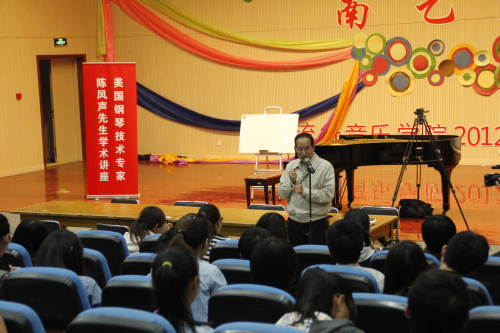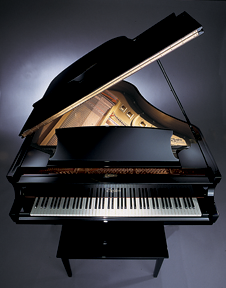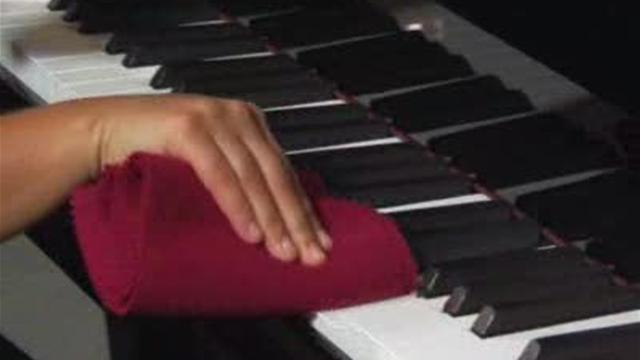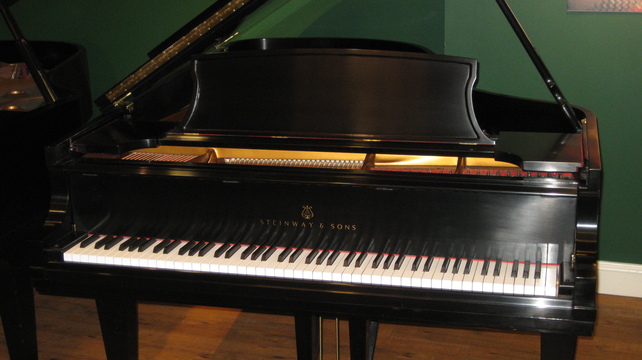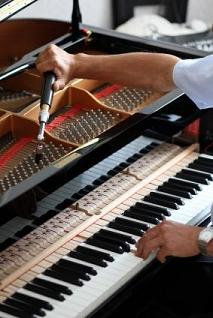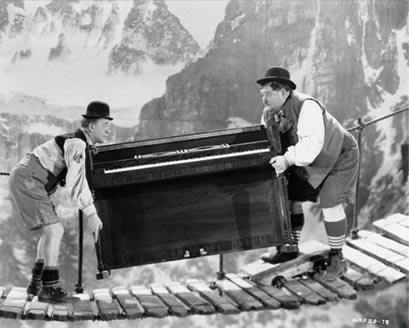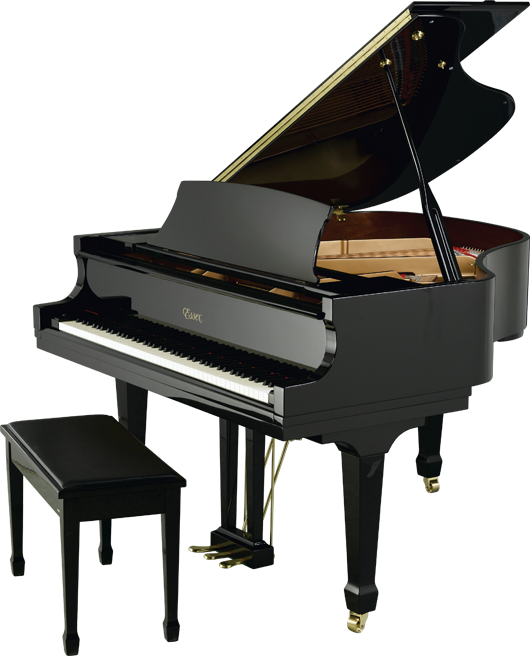The Rewards of Music Education
New Research Proves the Value of Childhood Music Education Piano Training In Early Childhood Has Lasting Rewards
There is an undeniably strong correlation between music education and the development of skills that children need to become successful in life. Self-discipline, patience, sensitivity, coordination, and the ability to memorize and concentrate are all enhanced in the study of music. These skills will follow your child on whatever path he or she chooses in life. You have the chance now to introduce a formative influence that may be second only to the love you give your child. If you’re looking for a way to provide your child with a source of life-long joy, satisfaction, and accomplishment, childhood music education is an excellent first step.
And the piano is an excellent first instrument. No other single instrument matches the piano for its broad application of musical concepts. Even if later your child chooses to play another instrument, the melody, rhythm and sense of harmony acquired with piano education will pay off handsomely.
Better Sooner Than Later
New evidence exists that there are actual physiological benefits to early childhood music education. A study released in February, 1997 presents findings that music education — specifically, piano instruction in pre schoolers produces changes in the brain which enhance children’s abstract reasoning skills. These skills are necessary for learning math and science, to play chess, and to master many concepts of engineering.
Dr. Frances Rauscher of the University of Wisconsin and Dr. Gordon Shaw of the University of California had previously linked piano/keyboard and singing lessons to enhanced spacial-temporal ability in pre schoolers. The new study documents that early piano training also has a direct effect on the development of the brain’s neural circuitry, actually improving intellectual development. In other words, this research points out that early piano training helps to create and maintain certain “connections” in children’s brains that may not otherwise form.
It has long been known that musically educated children develop skills they carry into adulthood Now it appears that piano training can actually make children more intelligent. Can you think of any more precious gift to give the children in your life?
Here’s How The Study Was Conducted
Thirty four children received private piano keyboard instruction, 20 children were given private computer lessons, and 24 children provided other controls. Four standard, age-calibrated spatial reasoning tests were given before and after training. One tested spatial temporal reasoning; three tested spatial recognition. Significant improvement on the spatial temporal test was found for the keyboard group only. None of the groups improved significantly on the spatial recognition tests. This led the researchers to conclude that music training produces long-term modifications in underlying neural circuitry in regions of the brain not primarily concerned with music. The magnitude of the improvement suggests that learning of standard curricula is also enhanced.
Other important developmental benefits to childhood music education
Researchers at the University of Konstanz in Germany found that exposure to music rewires neural circuits. For instance, they used magnetic resonance imaging to examine the brains of nine string players. They found that the amount of somato-sensory cortex dedicated to the fingering hand was far larger than in non-players. Additionally, the earlier the player took up the instrument, the more cortex was devoted to playing it. Most concert-level performers begin playing earlier than ten years of age.
Scientists at Beth Israel Hospital in Boston found that the brains of 30 musicians with perfect pitch — the ability to identify isolated musical notes they hear — had greatly enlarged structures on the left side of their brains. All the musicians with perfect pitch said they were exposed to music prior to age seven. The likelihood of developing perfect pitch is extremely low if exposure comes after age ten.
Another German study, at Heinrich Heine University in Dusseldorf, reported that exposure to music activates and enhances cognitive processes involved in language and reasoning.
Other studies show that all children are born with musical ability. For example, two month old infants can match the pitch, intensity, and melodies for songs their mothers sing, and at four months infants can match rhythm as well. But the older children get without exercising their musical aptitude, the more will be lost and never regained. The reason is neurological — by approximately age 11, the neuron circuits that permit all kinds of perceptual and sensory discrimination, such as identifying pitch and rhythm, become closed off.
Finally, students with coursework and experience in musical performance scored 51 points higher on the verbal portion of the SAT and 39 points higher on the SAT math portion than students with no coursework or experience with music — from data compiled by the Music Educators National Conference from The College Board.
One gift that really does keep giving
As your child’s musical education continues and extends to playing in groups, in recitals, or in competitions, one reward is the special camaraderie that often blooms between young musicians. This can often lead to friendships that last for years to come. The piano can also be a source of stability in the turbulent teenage years. And as an adult, the poise and self-assurance developed by playing and performing at the piano has very tangible value in social and business worlds. There is also the chance that your child has an exceptional musical talent, in which case a whole world of possibilities — both personal and professional — can be recognized and nurtured.
With such clear evidence of the benefits of childhood piano education, the choice as to which piano to purchase still remains. It is highly advisable to buy the best piano you can afford. It stands to reason that the higher the quality of the piano, the better it will sound. And that’s certainly encouragement to get your budding young pianist to play, play more often, and play longer!

